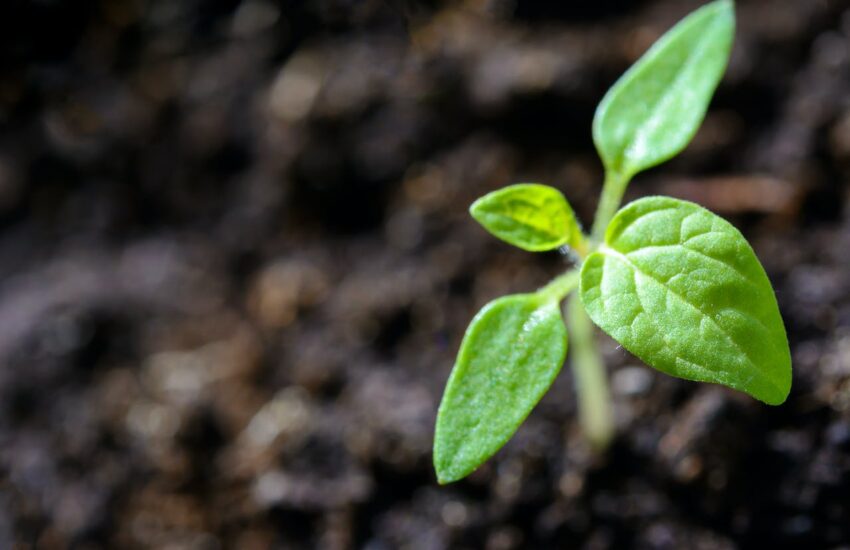Growing your own vegetables can be a rewarding progress that benefits not only your health and wallet but also the environment in significant ways. To grow your own vegetables, you will need the right tools. British Green Thumb can inform you of the best garden tools to help you get started. In this article, we’ll explore the various environmental benefits of cultivating your own vegetable garden.
Reduction of Carbon Footprint
One of the most significant environmental benefits of growing your own vegetables is the reduction of your carbon footprint. Vegetables and fruits in supermarkets often travel long distances from farm to store, contributing to carbon emissions through transportation. By growing your own, you eliminate the need for these transport emissions. Furthermore, commercial farming often relies on heavy machinery, which runs on fossil fuels, whereas home gardening typically uses manual tools and human energy.
Decrease in Pesticide and Fertiliser Use
Commercial agriculture often involves the extensive use of chemical pesticides and fertilisers, which can have harmful effects on the environment. These chemicals can leach into waterways, harming aquatic life and contaminating water supplies. By growing your own vegetables, you have the control to use organic and natural methods of pest control and fertilisation, significantly reducing the amount of harmful chemicals released into the environment.
Conservation of Water Resources
Home gardening can be more water-efficient than commercial agriculture. By employing techniques like rainwater harvesting, drip irrigation, and mulching, home gardeners can significantly reduce the amount of water needed for their gardens compared to the often wasteful water practices in large-scale agriculture. This conservation is particularly important in areas facing water scarcity.
Reduction of Plastic and Packaging Waste
Grocery store vegetables and fruits often come wrapped in plastic or placed in plastic bags, contributing to the global issue of plastic pollution. When you grow your own vegetables, you eliminate the need for this packaging, thus reducing your contribution to plastic waste. This also reduces the demand for plastic production, which is a process that itself is harmful to the environment.
Enhancement of Biodiversity
Home gardens can contribute to biodiversity in your local ecosystem. By growing a variety of plants, you create a habitat for various beneficial insects, birds, and other wildlife. This biodiversity is crucial for a healthy ecosystem, as it encourages natural pest control and pollination.
Soil Health Improvement
Growing your own vegetables allows for the practice of sustainable gardening techniques that improve soil health. Techniques like crop rotation, composting, and the use of organic matter help in maintaining soil fertility and structure, preventing soil erosion, and encouraging biodiversity in the soil. Healthy soil is essential for a functioning ecosystem as it supports plant growth and sequesters carbon, reducing greenhouse gases.
Promoting Sustainable Living and Community Engagement
Beyond the direct environmental benefits, growing your own vegetables can inspire a more sustainable lifestyle. It encourages a connection to the land and an understanding of the processes involved in food production. This awareness can lead to more environmentally friendly choices in other areas of life. Additionally, community gardens can foster a sense of community and cooperation, spreading environmental awareness and sustainable practices.
Reduction of Food Waste
When you grow your own vegetables, you’re more likely to use what you produce, reducing food waste. Home gardeners can harvest only what they need, and since the food is fresher, it has a longer shelf life than store-bought produce. Composting any unused or leftover plant material also contributes to a sustainable cycle, returning nutrients to the soil.
Education and Awareness
Gardening at home provides an excellent opportunity for education, particularly for children. It teaches the value of natural resources and the basics of ecology and agriculture. This awareness is crucial for building a future generation that is conscious of and committed to environmental protection.
Support for Pollinators
Many vegetable gardens include plants that are attractive to pollinators such as bees, butterflies, and birds. By providing these essential species with habitats and food sources, home gardens contribute to the health and preservation of pollinator populations, which are vital for the ecosystem and food production worldwide.
In conclusion, growing your own vegetables is more than just a hobby or a means to have fresh produce. It is an important step towards a more sustainable and environmentally friendly way of life. The collective impact of individual gardens can be substantial in addressing some of the pressing environmental challenges we face today. By adopting home gardening, we not only reap the benefits of fresh produce but also contribute positively to the health and sustainability of our planet.

